Orca sink another boat – experts say killer whales could be teaching others to attack
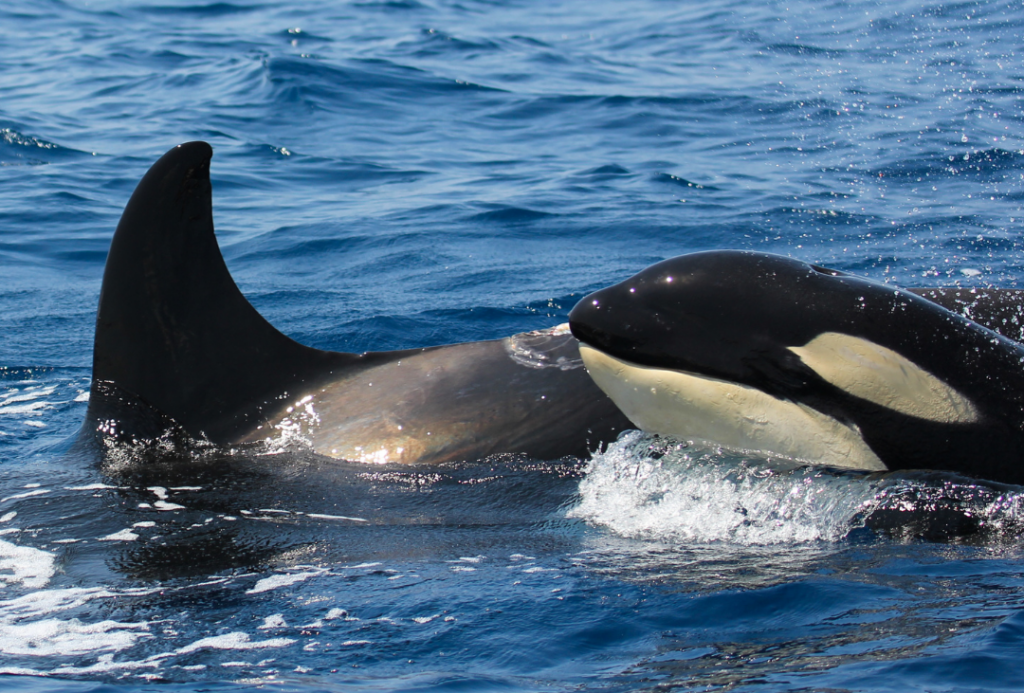
Orca have attacked another boat off the Spanish coast, with some experts suggesting that the whales are teaching the young to attack boats.
On 4 May, an orca attack left a small sailing boat rudderless off the coast of Gibraltar. According to reports, three orca attacked the Swiss sailing yacht. The crew had to abandon ship, with the boat sinking a little later.
While fortunately all crew members were rescued, the situation is of great concern to cruising sailors located within or transiting through the affected area.
Orca attack boats
A female orca, known as White Gladis, is thought to be behind some of the recent incidents in the Strait of Gibraltar. Some scientists are now suggesting the attacks may be a reaction to trauma following a previous collision White Gladis experienced with a boat, or being trapped in fishing nets.
The matriarch is now seemingly teaching younger whales how to attack and sink boats. It’s suggested White Gladis was also behind an earlier attack on 2 May, when six orcas tracked a Bavaria 46 sailing boat for over an hour near Tangier in Morocco. Although the pod eventually lost interest, the boat suffered extensive damage.
Alfredo Lopez Fernandez, a marine biologist at Portugal’s University of Aveiro, told Live Science the original incident involving White Gladis was possibly a “critical moment of agony.”
Fernandez says: “The orcas are doing this on purpose, of course, we don’t know the origin or the motivation, but defensive behaviour based on trauma, as the origin of all this, gains more strength for us every day.”
The Cruising Association (CA) says it is following the advice and opinion of marine biologists. John Burbeck, orca project team leader at the Cruising Association, says: “The most likely [explanation] is the orca are playing with the yachts. They are known to spin them round and push them along at speed. Vengeance for injury one sustained several years ago is a possibility, as is the increased noise once yachting movements started again after the pandemic lockdown.”
Orca learning from others in the population is also not being discounted by the CA. “There are interactions with orca where the skippers report describes adult orca apparently demonstrating the behaviour to juveniles. There are other interactions where adults act alone and where juveniles act alone. There is no standard orca behaviour it varies from apparent curiosity to stroking the rudder to playing with the yacht by spinning it, to violent attacks on the rudder which breaks it off,” Burbeck says.
Orca boat incidents 2023 – the latest figures
This latest attack follows a spate of ramming and attacks by orca off the Iberian coastline.
Data gathered by the CA in 2022 shows that around 73 per cent of yachts reporting an interaction were damaged and that around 25 per cent (one-third of the damaged yachts) had to be towed to port.
The CA has already had detailed reports of 25 interactions reported in 2023. “One yacht sank, seven had extensive damage, seven had moderate damage, and one had minor damage. Nine had no damage and eight needed a tow,” explains Burbeck.
In 2022, two yachts were lost following interactions with orca.
In November 2022, four crew members were rescued after their boat (image below) was attacked by orca, 25km off the coast of Viana do Castelo.
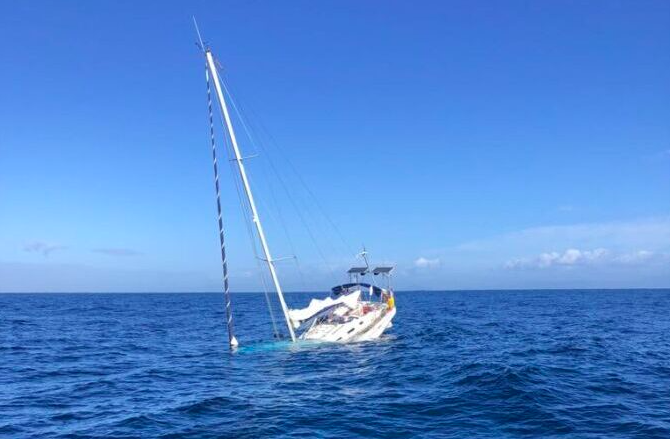
Orca incidents Iberian coast
In an effort to learn more about the interactions, record patterns and gain knowledge to help boaters, the Cruising Association (CA) has launched an updated online portal and web pages for orca information and reporting.
Available in English, French, Portuguese and Spanish – in collaboration with Grupo Trabajo Orca Atlantica (GTOA), the portal allows sailors to share information and the CA to gather reports from skippers on orca interactions and uneventful passages.
Skippers are urged to submit orca interaction and uneventful passage reports through interaction hotspots. The CA reporting portal is considered the central platform to monitor in detail interactions and uneventful passages, as it gathers comprehensive information in a structured way.
Data gathered includes sea state/wind speed, boat speed, day/night, cloud cover, distance off land, sea depth, hull/antifoul colour, type of rudder, use of autopilot and depth sounder etc. Additional data fields added for 2023 include detail on the number of orcas (and whether adult or juvenile) in contact with the boat, whether trailing a fishing lure, and reversing technique. These new fields are intended to test scientific theory-based advice and to look for best practice when reversing.
When did the orca attacks begin?
The new pattern of behaviour within the population of orcas that feeds on and follows the migration of tuna exiting the Mediterranean from the Strait of Gibraltar and heading west and north around the Iberian Peninsula was first reported in 2020. Beginning with a few specifically identified juveniles, the behaviour of bumping/ramming the hulls of small yachts and damaging rudders has expanded to other juveniles and adults.
In 2020 and 2021, the orca interactions predominantly took place between June to October. However, in 2022, orca activity and interactions — while reduced — did continue through the winter months.
The CA orca project team has analysed over 300 interaction and uneventful passage reports received in 2022, and some patterns have emerged, which are shared on the portal. Of the 132 interactions, 99 yachts experienced damage.
Latest orca advice for sailors
Although various deterrent measures are discussed, there are currently no reliable legal methods. The CA portal provides a safety protocol and a list of potential, yet unproven, deterrent measures. Examples include staying close to shore, staying in shallow water, using sand as a screen, reversing and making a noise onboard.
Burbeck adds: “Stay in shallow water, less than 20m and close to the shore, less than two miles offshore. Avoid the most active periods and areas – gather information on the latest activity from the CA website and monitor the live information feeds on GT Orca Atlantica, GT Orca and ORCINUS apps, Facebook Orca Attack Reporting page and Telegram Orca Discussions.”
Disclaimer
Any advice has been prepared by the Cruising Association, its members and others and they have tried to ensure that the contents are accurate. However, the Cruising Association, its employees, contributors and relevant members shall not be liable for any loss, damage or inconvenience of any kind howsoever arising in connection with the use of such advice, save to the extent required by applicable law.


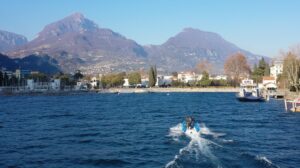
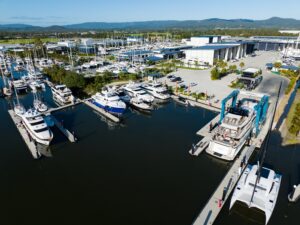
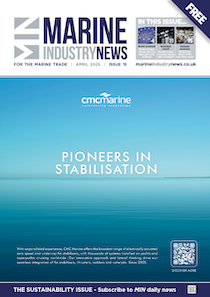







And how DC ? How “the fish” react to this?
I think it’s time to leave ALL animals in peace! humans are everywhere!! time to respect their spaces for God sake!
Even the animals getting fed up with the humans race. Because they are destroying the planet.
Frankly my sympathy is with the Orcas.
We humans forget it is their home not our.
Its time to re think.our relationship with them and our attitudes about their home.
To try and deter them will only kindle an agressive response.
We are not the only intellengent beings on the planet!
Are these poor inocent killer Wales to be left alone to do their damage and danger to life, No No. We should start shooting a few of the attackers to let them see we are not play things for them before they kill a few of us. I am sailing that way in maybe in a couple of weeks.
Could it just be. That they have had enough of the noise pollution and sea pollution….
And it’s nature fighting back…
Brilliant about time mother nature gets revenge
It serves the whole planet right after decades of abusing and killing these magnificient creatures that we are now at the receiving end of their powerful but playful head butting,nothing vindictive, we just need to respect them and be in awe,and not retaliate in any harmful way towards these peaceful playful giants of the sea.suck it up,and shut up ,keep away from them ,they are sharing their home with us,whilst we insist on filling it with plastic rubbish, and netting that entangled the beautiful creatures that swim in our oceans.Stop polluting their home not only with plastics but oils and spills off vessels, then you wonder why they are upset,you would be to in their position.
When will people learn to respect these amazing creatures.
We have caused the problem in the first place anyone with sense can see that.
This world would be a beautiful place and all animals would be left alone. Without us humans in it
Man is the cause of the problem
So now is the time for pay back. Years of hunting and persecution of these magnificent creatures. Babies taken from their mother’s for human entertainment.
It is time the humans left them in peace, and the rest of the wildlife on land and sea.
To those who wish to destroy these magnificent creatures, shame on you, you need to educate yourself. The water is their home and we are destroying it.
THE SWARM! Lol???????
A fabulous book!
There playing a game. Put an old boat out for them. It would be a great tourist attraction. Seeing them playing.
It’s time to leave these beautiful highly intelligent species alone in their world and respect them .
There is a series on ITV at the the moment call the “The Swarm” which is fantastic and shows the beauty and intelligence of the sea life and the consequences as they fight back as humans destroy it .
Watch it !!
Time for human population to stop taking and start taking care of this beautiful world